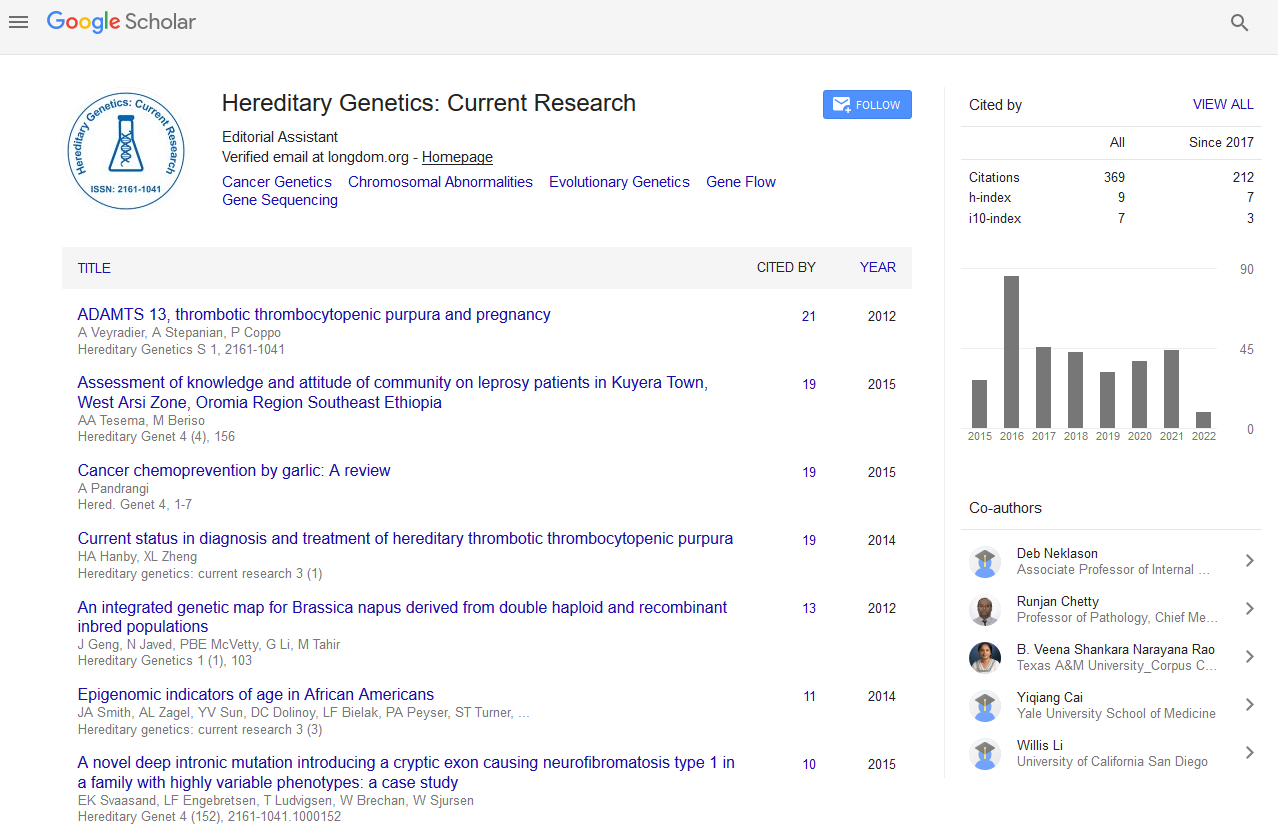PMC/PubMed Indexed Articles
Indexed In
- Open J Gate
- Genamics JournalSeek
- CiteFactor
- RefSeek
- Hamdard University
- EBSCO A-Z
- NSD - Norwegian Centre for Research Data
- OCLC- WorldCat
- Publons
- Geneva Foundation for Medical Education and Research
- Euro Pub
- Google Scholar
Useful Links
Share This Page
Journal Flyer

Open Access Journals
- Agri and Aquaculture
- Biochemistry
- Bioinformatics & Systems Biology
- Business & Management
- Chemistry
- Clinical Sciences
- Engineering
- Food & Nutrition
- General Science
- Genetics & Molecular Biology
- Immunology & Microbiology
- Medical Sciences
- Neuroscience & Psychology
- Nursing & Health Care
- Pharmaceutical Sciences
Abstract
Darwinian Evolution and Quantum Evolution are Complementary: A Perspective
Georges Nemer, Christina Bergqvist and Mazen Kurban
Evolutionary biology has fascinated scientists since Charles Darwin who cornered the concept of natural selection in the 19th century. Accordingly, organisms better adapted to their environment tend to survive and produce more offspring; in other terms, randomly occurring mutations that render the organism more fit to survival will be carried on and be transmitted to the offspring. Nearly a century later, science has seen the discovery of quantum mechanics, the branch of mechanics that deals with subatomic particles. Along with it, came the theory of quantum evolution whereby quantum effects can bias the process of mutation towards providing an advantage for organism survival. This is consistent with looking at the biological system as being a product of chemical-physical reactions, such that chemical structures arrange according to physical laws to form a replicative material referred to as the DNA. In this report, we attempt to reconcile both theories, trying to demonstrate that they complement each other, hoping to fill the gaps in our understandings of the versatility of the mutational status of the DNA as an essential mechanism of life compatibility.


